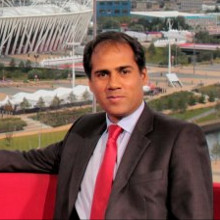British Banks have not lost their way, as some suppose. They have re-defined their way. And Martin Wheatley knows it. The Managing Director of the Financial Services Authority, and future CEO of the newly created Financial Conduct Authority, served notice that commissions paid to bank employees for the selling of financial products and services will now be under stricter scrutiny. His objective will be to ensure that financial institutions return to the days of providing a service rather than selling products – or face “intrusive” action for failure to do so.

Wheatley’s Questions
Speaking before an audience at Thomson Reuters in London, Mr. Wheatley asked,
“Why is it that every time I walk into the bank to do something simple, like pay my credit card bill, the person behind the counter asks me if I would like to extend my credit, take out more insurance or look at their competitive mortgage rates?”
“When did this happen? Banks for me used to be a service – a place where you would go in, stand in a queue, have a pleasant chat with the clerk and go about your daily business.”
Wheatley’s Observations
Wheatley’s understanding of the problem is evidenced by several of his observations:
- “Most of the incentive schemes we looked at were likely to drive people to miss-sell to meet targets and receive a bonus, and these risks were not being properly managed.”
- “The lack of trust and confidence is amplified each time that someone working for a bank, insurer, or investment firm sells products predominantly driven by financial incentives for themselves and profit for their firms, rather than the needs of their customers.”
- He described some incentive schemes as “guaranteed to give the wrong outcome for the customer.”
- “We have found evidence of poor practice and we are concerned that this reward culture is a significant contributor to miss-selling.”
- “Incentive schemes on PPI were rotten to the core.”
Wheatley’s Challenge
Martin Wheatley now faces a difficult challenge. He must change the entire culture of banking and financial service sales. He must change the entire paradigm of how the banks view the people who walk through their doors. He must change the top floor policy makers’ ideas of how to generate revenue. He must change management’s ability to find a way to achieve the corporate goals. This will not be easy. And if he can pull it off, he is going to have to have successors who hold to the same principles.
The Corrupt Culture and the Perverted Paradigm
The corrupted banking culture – and this is not restricted to the UK – has become one where the customer is no longer the reason for existence. Customer satisfaction is no longer a business or a moral standard. It has been replaced by the desire for personal gain, all the way from the board room down to the tellers. The culture has become the essence of corporate and individual greed, as staffers at all levels seek to line their own pockets and to climb the corporate ladder. Down on the banking floor, the staff knows that the way to the top is to be a leader in sales and commissions, taking them to the next level where the both the salaries and the incentives are greater. And on it goes all the way to the boardroom. Make more money. The more you make, the more we make. The more we make, the more you make. This culture inevitable leads to sales becoming more important than customers are.
The perverted banking paradigm is that the banks no longer see the people coming through the door as customers. They see them as consumers. The banks have lost sight of the difference between a customer and a consumer. The idea of taking care of their money has been replaced with taking their money. A customer is a person who makes it “their custom” to frequent your business. Customers are cultivated by offering needed products whilst establishing a relationship based on service and trust. A consumer is someone who has money available to spend. The consumer paradigm inevitably leads to selling people products that they don’t need and many of which provide them no benefit whatsoever.
Good Luck, Mr. Wheatley
You’re going to need it.

 Hot Features
Hot Features













